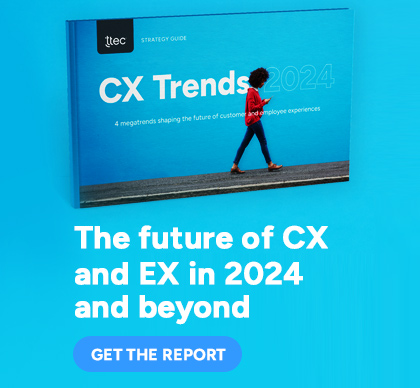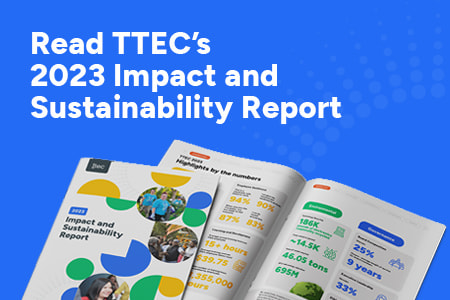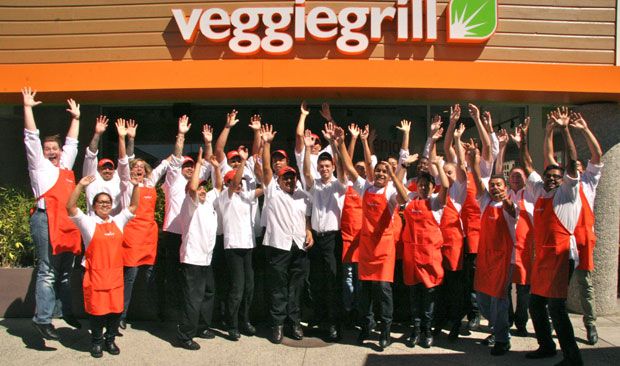There are several reasons a company may be targeted for investment: It's got exciting new products and services with growth potential, or it may be in distress and in need of restructuring, for example. These common attributes of private equity interest are important, but not the only things to catch an investor's eye. For private equity firm Brentwood Associates, customer loyalty is a critical financial factor.
Eric Reiter, partner at Brentwood Associates since 1999, says customer loyalty delivers more stable and consistent growth over time than any other factor. That's why the firm focuses on investing in brands that maintain an intensely loyal customer base. Through its analytical approach, Brentwood Associates looks to customer loyalty and satisfaction metrics, such as Net Promoter Score, to assess where any given company's customer loyalty has been and where it's likely to head.
While multiple factors contribute to customer loyalty, Brentwood Associates understands that brands who successfully connect with consumers on a deeper level are much more likely to withstand any potential economic pressures. The strategy has paid off. According to the New York Times Brentwood Associates has invested in more than 40 companies since it began in 1984, "with a total transaction value...of more than $5 billion."
Here, Reiter speaks to Customer Strategist about Brentwood Associates' forward-thinking approach to investment and the importance of loyalty when preparing for the customer of the future.
Customer Strategist: Was Brentwood always focused on investing in brands with great customer loyalty? If not, what triggered the switch?
Eric Reiter: We've been around for 40 years, so the focus has changed over time. In 2002, we had internal discussions about the mass-market not allowing you to drive brand or customer loyalty because fewer players controlled the channel and the emphasis was always on price. That's when we changed our focus to look at products that had a multi-dimensional distribution. That meant more specialty retail distribution, catalogue, and Internet.
CS: How does Brentwood determine which brands are ideal investments? What elements must align?
ER: We're typically targeting brands that appeal to a demographic of higher affluence that is well educated and likely to be employed regardless of the economy. This group has a higher, more consistent disposable income. We also look for brands in the early stages of penetrating their target market and have a potential to reach a far larger audience and triple in size over the course of our ownership. Our involvement brings marketing dollars and product investment, as well as national and often international expansion. In many cases, we invest in the best businesses you've never heard of before. Our portfolio companies always have awareness, but a lot of room for growth when we first take them over.
CS: What companies have you invested in that have shown great promise and growth as a result of your partnership?
ER: We've had great successes in building durable businesses. We invest in businesses to build a solid foundation that will serve these companies well in the future. For example, we recently completed the sale of Paper Source, a company we took from 20 stores to 80. Our current portfolio includes the Sundance Catalog, which we invested in this past year, and already we're seeing 15 percent in annual growth, with more to come.
CS: How do the companies Brentwood invests in use the money provided to improve the customer experience and grow the business?
ER: The customer experience can take place at a couple of different places. For example, we just created a new prototype store for Soft Surroundings. It's exceeded plan already and the customer response has been outstanding. There are a lot of ways to improve the customer experience in stores from checkout technology, visual merchandising, and in-store signage, for example. We also focus on the online experience to improve conversion rates. There is always so much opportunity to improve.
CS: What red flags might arise in potential investments?
ER: We want companies with repeat business. One and done is not our model. We're always looking for businesses with customers who like the brand and keep coming back. That's absolutely the model with The Great Courses, Soft Surroundings, Veggie Grill, and Sundance Catalog.
CS: How do you expect Brentwood to evolve?
ER: For the last decade, our strategy has been very effective, and as we seek to deploy capital, we see that our formula works. The businesses we invest in are special. They don't come along often, but we also have a highly nuanced filter that has allowed us to be very effective in picking those most likely to grow.
CS: How does Brentwood's strategy reflect the future of investment?
ER: Our investment strategy aligns very well with the new consumer who uses multiple devices to interact with brands and has the desire to be a brand advocate. New consumers want to share everything and be a part of the lifestyle. Our products and companies appeal to people on an emotional level. Since we invest in lifestyle brands, they're perfectly suited to grow with today's consumer.
CS: What role will loyalty play in preparing for the customer of the future?
ER: Loyalty is an imperative as a starting point, but keeping customers loyal requires tremendous attention and focus. Our experience is that financial rewards come from delivering great value to customers who then reciprocate with loyalty. That pays huge dividends when you get it right.






